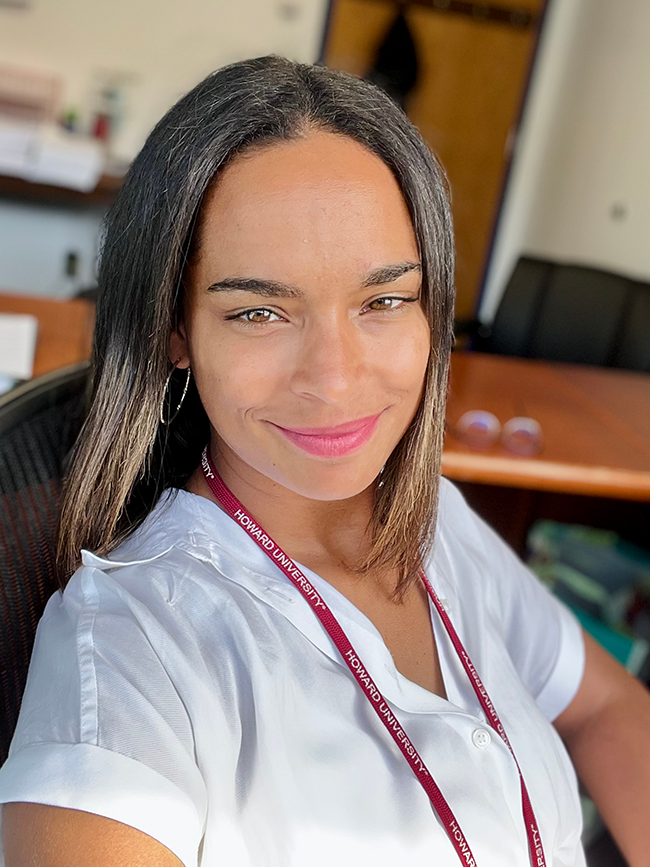AOTA Member Spotlight: Erica Alexander, OTD, CHPC, CFE, CPHQ
Erica Alexander, OTD, CHPC, CFE, CPHQ, is Deputy Chief Compliance Officer at Howard University. Erica has had an extensive career in quality and compliance, is certified in health care privacy compliance (CHPC), is a certified fraud examiner (CFE), and is a certified professional in health care quality (CPHQ). She recently discussed her career journey with AOTA Director of Quality, Julie Malloy.

Julie: How did you become interested in quality?
Erica: For the first 3 years of my career, I was a traveling therapist. I enjoyed change and I got to see the good and the bad of how various places worked. I saw that the culture of an organization had a big impact on how the organization worked for both the patients and workers.
This experience led me to my next position, which was in management of health care clinics. I learned a lot about operations during this process, and then became a regional director of quality and compliance. I really appreciated the opportunity to help improve direct patient care through this process.
Julie: What are the greatest things you have learned by working in health care quality?
Erica: I have learned how to have the largest impact in the quality and compliance world by working to find ways to help clinicians, instead of making compliance difficult and adversarial. I see compliance not as what you do, but how you do it. I believe my role is to help make people’s jobs easier and integrate quality and compliance into clinical care.
Julie: What are the parts of occupational therapy that you use most in your quality work?
Erica: Occupational therapy practitioners have a beautiful capacity for shared learning, and I utilize this every day. I work to focus on the care of patients, building operations to support this, and building rapport and trust among staff. This includes the therapeutic use of self.
Julie: What can you tell us about your current position at Howard University?
Erica: I am the Deputy Chief Compliance Officer at Howard University. I focus on the health sciences programs, and work to create translatable compliance solutions across the university. It is an honor to be a part of this Historically Black College and University (HBCU) that is championing a new age of compliance and focused on excellence in quality care delivery.
Julie: What advice do you have for practitioners interested in learning more about quality and compliance?
Erica: I suggest that practitioners challenge themselves and try new things. You may want to consider how you can lead in your current position or look for lateral changes or opportunities to build your quality and compliance skills. Occupational therapy practitioners are so well suited to this work, as we dig in and get things done. By utilizing our skills to keep patients and consumers at the center of the process we can create safe spaces to address quality.
For questions or more information about quality, contact AOTA’s quality team at quality@aota.org.